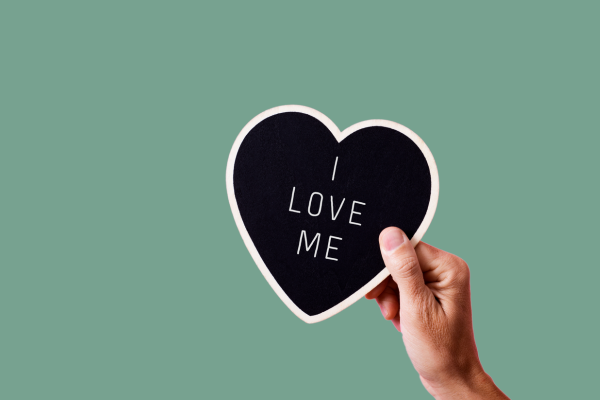Why is self-love so darn difficult?

It’s Difficult Because…
(and we’re working on it)
Society romanticizes the desire to love and be loved. An unrequited bit that leads to a passionate longing we can only find in another being. It is not surprising that with the outward focus on others, self-love becomes a difficult endeavor.
As humans we are built and bound by love. It is inherently easy to love someone else. It sometimes happens quickly and unexpectedly. But why is it so difficult to love ourselves in the same passionate, unrequited and compulsive way that we can love others?
The path to self-love begins with the realization that we have every right to be happy and content with who we are. It involves embracing our imperfections, accepting ourselves as we are, and finding the courage to practice self-compassion.
After each section below, take a moment to truthfully answer the question that follows.
1) We romanticize other lifestyles
Society often paints a picture of ideal happiness as a life shared with others. Browse through into any influencer’s posts and videos, and often the ones with the most engagement gives insight into their lifestyle. An even bigger bonus if it unveils aspects of their love life, friendships and family.
While there's undeniable joy in companionship, this narrative can also shadow the importance of self-love. As a follower, we indulge in the romanticizing of others in a rabbit hole of digital consumption. Consequently, we might find ourselves in a never-ending pursuit of approval, often overlooking our own needs and desires. This societal norm, while seemingly harmless, masks the crucial necessity of self-love.
As we head into 2024, we can start the process of internalizing self-love by consciously choosing to think and speak positively about ourselves. Choose positive affirmations that speak to our strength and capabilities.
Question: Who are your top 3 favorite people in the whole world?
2) We give more grace to others than ourselves.
Its not easy to give ourselves the same grace we extend to others.
It is true that we can be our harshest critics. We may applaud a friend for their courage in making a difficult decision, yet berate ourselves for a similar choice, deeming it reckless or impulsive. This dichotomy is largely rooted in the normalcy of environments which cultivates self-criticism and, at times, self-deprecation.
We are often more forgiving of others' mistakes while our own transgressions become magnified by our internal critic. This disproportionate distribution of grace and criticism sets us up for a struggle with self-love.
The golden rule “Do unto others” doesn’t only mean to treat others with kindness and respect. Its a reminder to treat ourselves with the same kindness and respect that we give others.
Question: What have you forgiven in someone that you haven’t forgiven yourself for?
3) We’re stuck in negativity bias.
Negativity bias is a psychological principle where negative experiences have a greater impact on our mental state than neutral or positive ones. This can significantly affect how we perceive our self-worth. This bias often leads us to minimize our accomplishments and magnify our shortcomings, resulting in a distorted self-perception.
We may not easily notice that we are expressing this bias. Here are two behavioral examples:
- We may downplay our achievements, attributing them to luck rather than our efforts, whereas we may take full responsibility for our failures.
- We have issues taking compliments on our physical attributes, and deflect to someone else with similar attributes when complimented.
This can be a significant stumbling block on the path to self-love, so let's remember to give yourself the credit you deserve.
YOU did it - whatever it is.
YOU are it - whatever the compliment states.
Because YOU are pretty darn amazing, and that’s more than ok.
Listen up. Happiness is your entitlement.
Acceptance is the cornerstone of self-love and self-compassion. It involves acknowledging our strengths and weaknesses without judgment. Acceptance doesn't mean resignation or complacency, but rather it's a recognition of our current state of being. This allows us to movewithin a space of honesty and awareness.
It means that we’d now be ok our strengths and acknowledging our weaknesses without self-criticism. As we accept who we are, we can begin to see our worth and potential, steering clear of self-deprecating thoughts and feelings.
Q: Are you ready to have a deeper connection with yourself?




